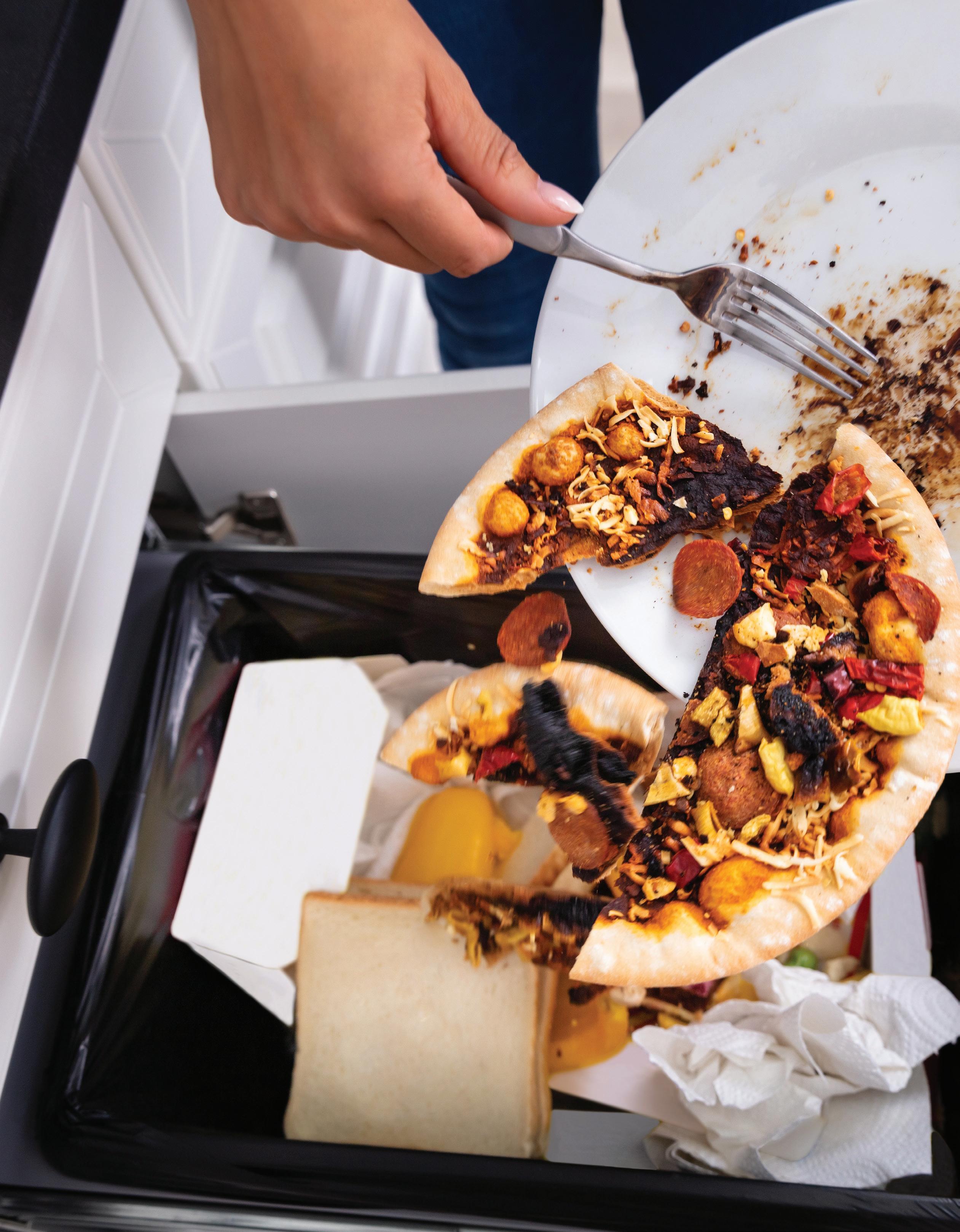M
Editor’s Note
Trash talk: Quelling wasteful habits Sarah Wright | Editor
W
aste is easy to ignore in day-to-day life. It’s something placed in a bin and taken to a nebulous destination that’s not the house, and then it is forgotten. However, when cleaning out your refrigerator following a storm-induced power outage in 100 degree temperatures, waste becomes harder to ignore — particularly after uncovering a couple of would-be science projects hidden in the back. According to Marketplace.org, citing research from economists Edward Jaenicke and Yang Yu published in 2020, the average American household wastes nearly 32% of the food it purchases — what amounts to about $240 billion in wasted food annually. Even without a power outage necessitating the disposal of such a large amount of food, I fall in line with the trend Jaenicke and Yu discovered. Besides the science projects, I uncovered foods I’d forgotten about and had missed their best by dates considerably. I try to right-size my purchases and never shop hungry, but I still purchase more than I can eat within a set time frame. Having a bag full of wasted food drove the point home. And it’s not just food going down the metaphorical drain. In 2018, according to the Environmental Protection Agency’s website, the United States produced 292.4 million tons of municipal solid waste, the equivalent of 4.9 pounds per person per day. Cities across the country have strove to scale back these numbers through recycling programs, education and engagement. In this issue of The Municipal, we highlight several of these efforts to get communities to engage with waste, its journey and its hopeful diversion from the landfill.
8 THE MUNICIPAL | AUGUST 2022
Close to heart at the moment is Iowa City, Iowa’s, new program Love Food, Fight Waste — launched in partnership with Table to Table — which aims to educate residents on eliminating food waste. Writer Nicholette Carlson shares the city’s approach with the program and the impact it is having in residents’ lives. Another movement is diverting what we can fix from landfills across the country. Writer Julie Young spoke with Flagstaff, Ariz.; Austin, Texas; and Chula Vista, Calif., about their successful fix-it clinics. These clinics pair talented volunteers with residents with objects they’d rather see fixed than trashed. The volunteers give their skills to the residents, teaching them how to repair common household items like lights, fans and bicycles. Every community has similarly talented individuals; all they have to do is reach out to them. Tapping into the community is important for waste. Writer Denise Fedorow highlights Joplin, Mo.’s, and Council Bluffs, Iowa’s, efforts to get their residents involved in making decisions regarding municipal solid waste. Other waste and recycling topics include taking out the litter and Broken Arrow, Okla.’s, Water Reuse Project at its Lynn Lane Wastewater Treatment Plant. From time to time, it’s good to reflect on the waste we produce, though I would prefer not having to brave 100 degree temperatures without air conditioning to do so. .

















